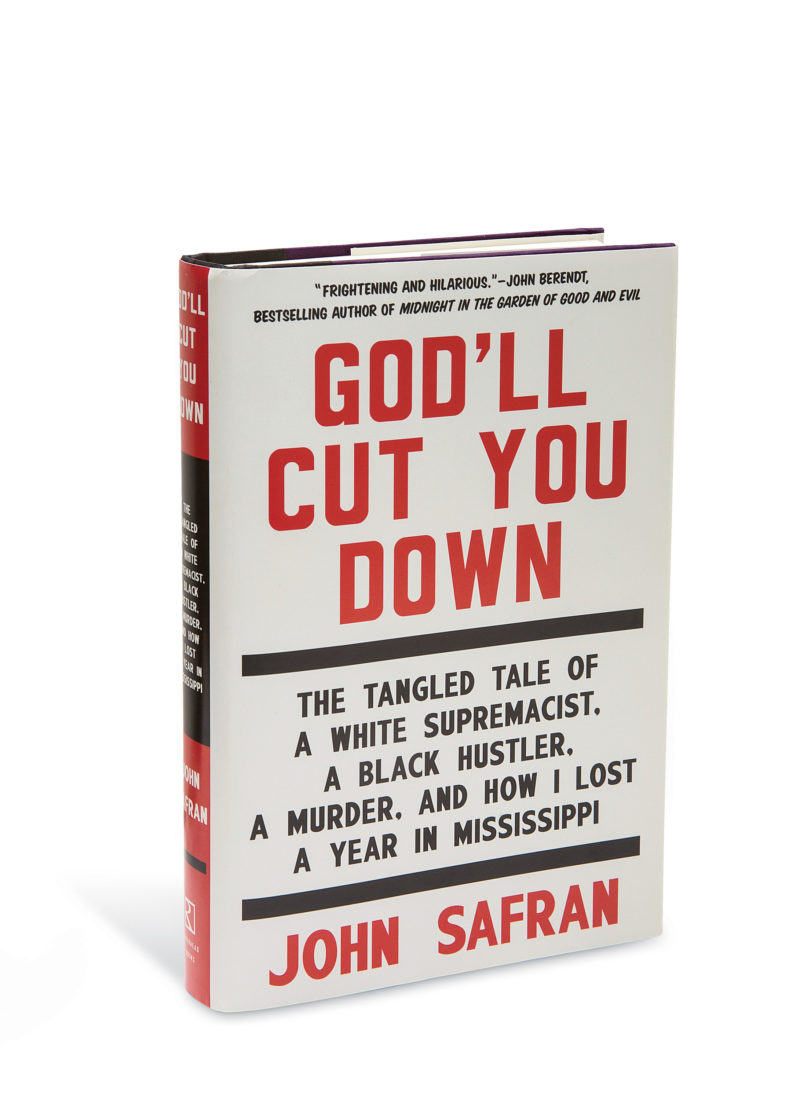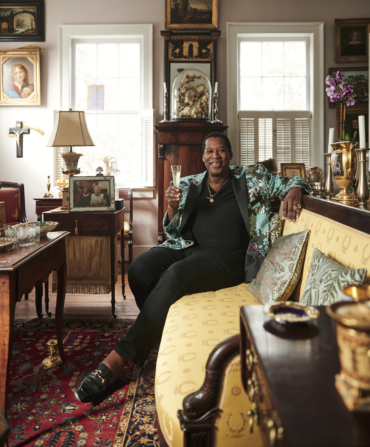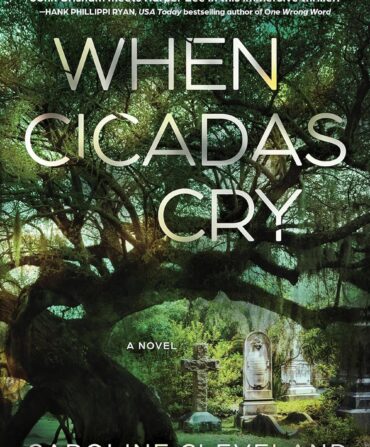Murdered in rural Rankin County, Mississippi, April 2010: Richard Barrett, mid-sixties, lawyer, white supremacist organizer.
What happened?
Barrett had hired a twenty-three-year- old black neighbor and acquaintance, Vincent McGee, for yard work. Barrett asked McGee to come to his home, where McGee stabbed Barrett numerous times, killing him. McGee left, returned the next morning, and set Barrett’s body and his house on fire. McGee had been seen with Barrett the day before, and when police went to McGee’s house, they saw bloody shoes in the carport. McGee was arrested.
John Safran, an Australian documentarian who had met Barrett a few years earlier while filming a TV series on race relations, read about the murder, dropped everything, flew to Mississippi, and proceeded to interview everybody he could reach (many people) who knew the victim and/or the killer. Out of Safran’s time in Mississippi comes God’ll Cut You Down.
First off, that title. The expression comes from a song sung by Johnny Cash—and the sentiment was not lost on me when I was a boy attending a rural North Carolina Southern Baptist church. It lingers still.
If you enjoyed In Cold Blood by Truman Capote, and have been drawn to other true-crime books, then you will probably devour this book. But fair warning: Safran doesn’t pull punches, in either the language or the subject matter. His approach, mixed with a sharp sense of humor, wise pacing, and plain, powerful writing, makes this book into a deeper experience than you suspect when you read its tabloid-like subtitle: The Tangled Tale of a White Supremacist, a Black Hustler, a Murder, and How I Lost a Year in Mississippi. That deeper experience comes from Safran’s refusal to quickly analyze according to traditional crime-solving plotlines. He is obsessed with learning about McGee’s and Barrett’s families, upbringings, acquaintances, lovers, beliefs, tragic pasts—not just what happened but why it happened. As a more complex picture of the two men’s relationships to other people and each other emerges, we follow breathlessly into a kind of mesmerizing psychosocial-cultural drama.
Another main draw to this book is the writer’s candid talk to the reader about his own dilemmas and prejudices:
If Vincent killed a white supremacist, fighting racism, he can be the hero in that story. If Vincent killed a gay man for hitting on him, that doesn’t work anymore. I wanted the narrative to be me and the brave McGee family against “the system.” I wanted to be hanging with the black activist lawyers, but they’ve cut me off… This story isn’t working out like it should.
I read the book off and on over a number of days, and it was as if on each reading it gained a kind of substance—it somehow grew—until I felt it resembled a house with rooms. It gained a personality. In the end, I felt that I knew, personally, Vincent McGee and Richard Barrett (better than I knew the frank but elusive Safran). I do not remember a nonfiction book that seemed to bring me so close to its subjects.
Safran, in spite of his prankster persona, couldn’t hide the fact that he is an excellent writer, a crafty stylist who understands the subtleties of nuance, point of view, and timing. He has picked from among what was surely a mountain of material and produced a work of narrative art that takes readers from an investigation of an apparently straightforward murder case to an engrossing saga. We also encounter a sobering view of the justice system and the way it brought McGee to jail. We come face to face with some of what we don’t want to see about how race, community, and privilege influence our pursuits of happiness.
For a part of the country, the South, that celebrates its past so vociferously, this book offers a look into darker aspects of our present that reflect darker aspects of our past. And therein lies hope, a deep message in God’ll Cut You Down. We can be healthier than we are if we’re willing to consider, discuss, and act on the whole picture, present and past. And if we do that, we may cut the chances of God’s cutting us down.









